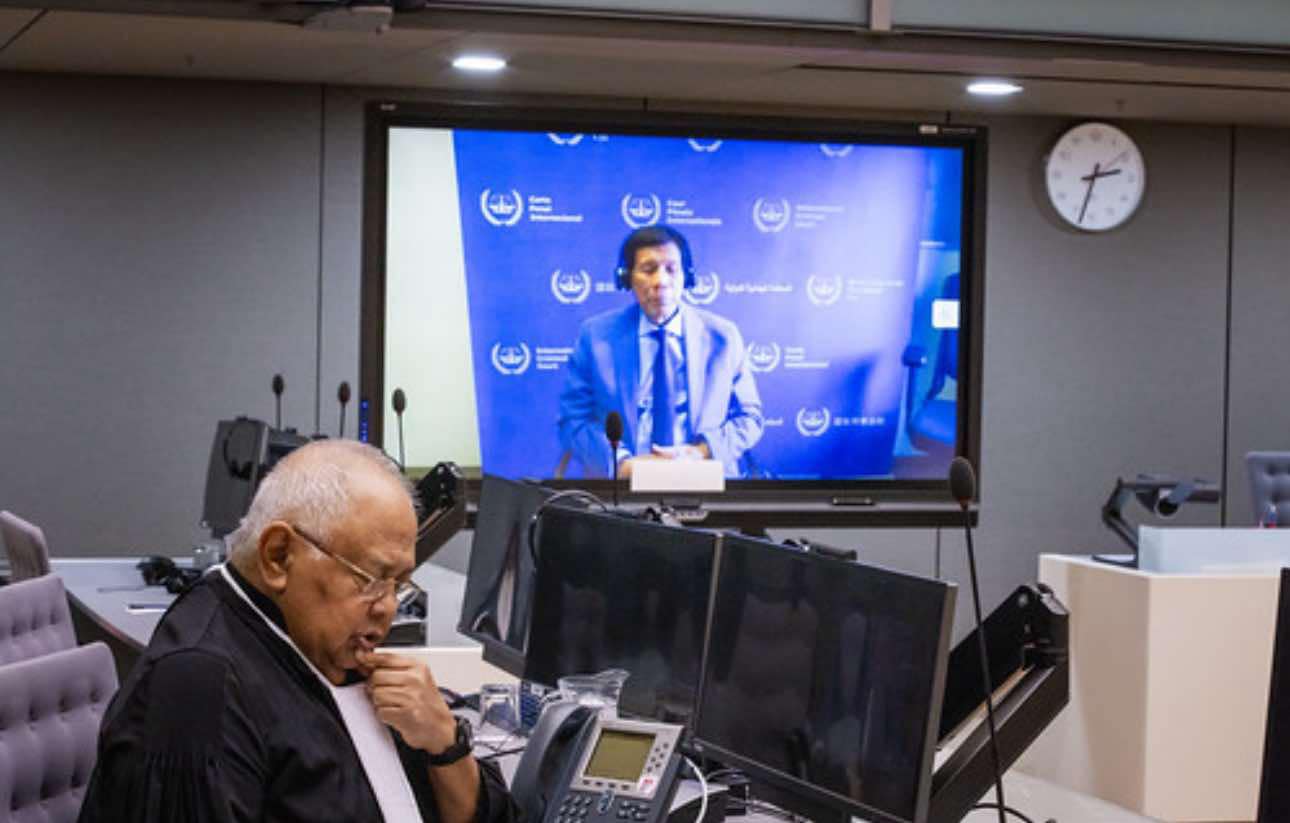ICC: Duterte eyeing interim release needs consent for its conditions from PH
Any possibility of former president Rodrigo Duterte’s interim release and temporary return to the Philippines from his detention in the International Criminal Court (ICC) in The Hague will depend on the decision of the Philippine government, the tribunal’s spokesman said.

Former president Rodrigo Duterte at his initial appearance hearing via video link on Friday, March 14, 2025, at the International Criminal Court in The Hague, Netherlands. Also in the photo is his legal counsel, former executive secretary Salvador Medialdea. (ICC Photo)
ICC spokesman Fadi El Abdallah said in an interview with GMA Integrated News that the Philippines has to accept technical measures and conditions for the ICC judges to decide whether to grant the former president’s request for an interim release.
While there is no word yet on whether the Duterte camp has already applied for an interim release, lead counsel Nicholas Kaufman already hinted that they will be filing for the former president’s temporary release in due time.
“An interim release can be requested if there is a possibility to put in place measures and conditions to ensure that if a person is released, none of that would happen, and that this person will be brought again before the court if the judges order,” the spokesman explained.
“So that means that there is a different set of conditions that needs to be checked,” he added.
ICC conditions
The presumption of innocence follows the “freedom of the suspect and not the detention,” El Abdallah stated, adding that judges issue a warrant of arrest because they believe that an individual “is still committing crimes or because he or she would not appear before the Court and cooperate” with the ICC
“Or because they believe that maybe without arresting this individual, they may be creating threats to the proceedings, to the investigation, or to the witnesses. So, they have to justify that,” he said.
As a “general principle,” the ICC spokesman explained that “all these conditions and questions need to be discussed before the judges” before the judges will decide whether or not to grant an interim release.
State consent
Duterte also has the option to choose another State, and not the Philippines, where he would be staying while in temporary liberty.
“Now as a matter of principle, the ICC can enter into general agreements for interim release or for other purposes with different states, but can also enter into ad hoc agreements with certain states for specific cases,” El Abdallah said.
“The technical measures and conditions have to be decided on a case-by-case basis by the judges and have to be accepted by a certain State for it to be ordered by the judges,” he added.
He underscored the importance of a State’s commitment “to cooperate and will follow the conditions in connection with the interim release.”
“Does this country accept this release? If the court is ordering certain conditions and measures to be put in place to ensure that he will not be in contact with this or that, that he will not be threatening the investigation, that he will be brought again before the court when the judge is ordered, does the country accept these conditions and measures or not and so on,” the ICC spokesman stressed in the GMA report aired on “24 Oras”.
The former president faced for the first time the ICC’s Pre-Trial Chamber I on March 14 to officially hear the charges against him and be informed of his rights under the Rome Statute.
He is scheduled for a confirmation of charges pre-trial hearing on Sept. 23 but is expected to seek an interim release before that date.